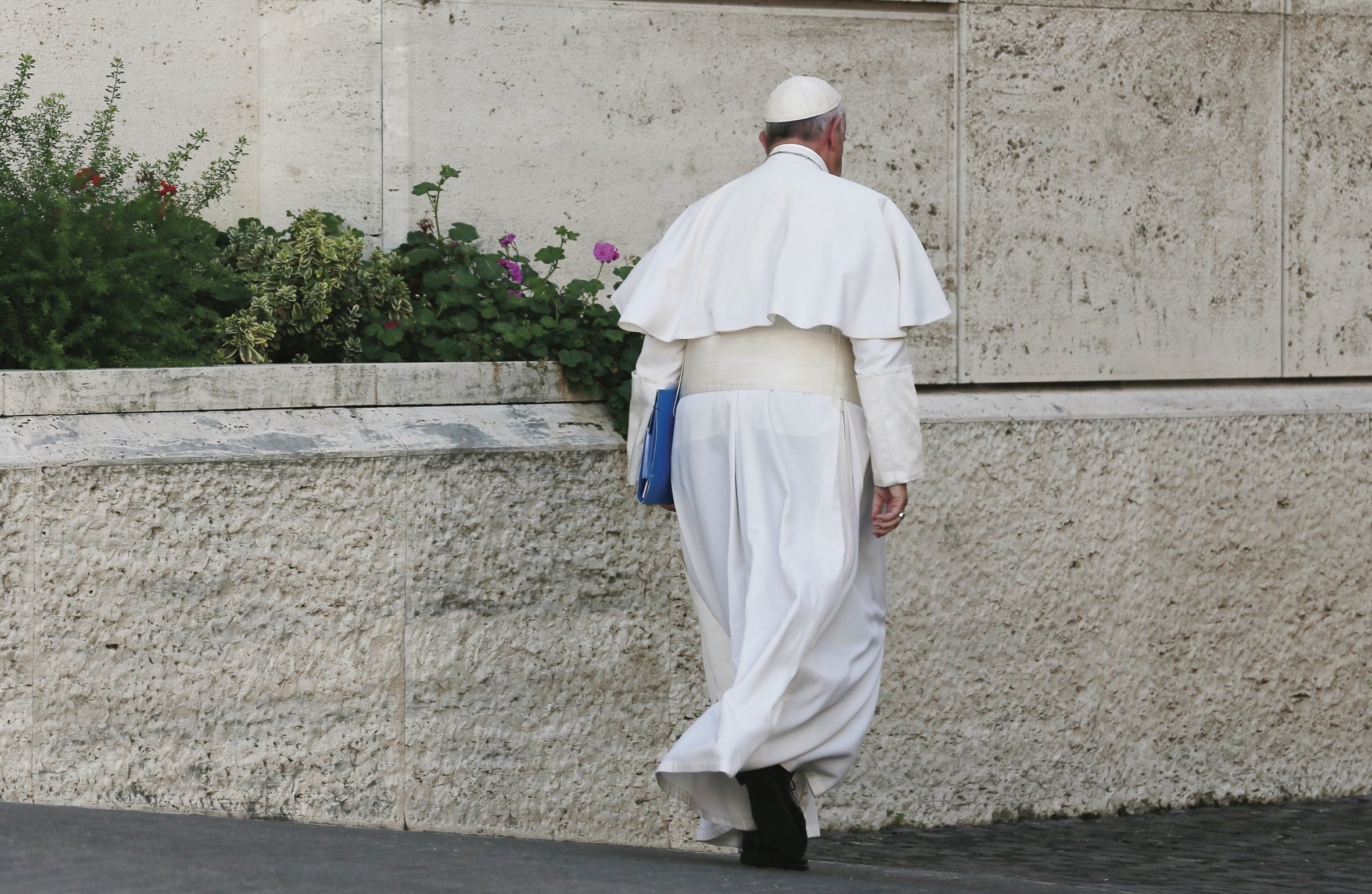
Francis leaving the Synod Hall on its final working day, October 24.
Thoughtful remarks and reflections expressed by four participants and one astute observer, in various contexts during the October 4-25 Synod on the Family
“The most merciful thing is to tell the truth in love…”
Excerpts from the Introductory Talk Given by Cardinal Peter Erdo, the Synod’s Relator General
Cardinal Peter Erdo of Esztergom-Budapest and Primate of Hungary, delivered the Synod’s opening remarks October 5, delineating the topics of discussion. He distinguished himself by issuing the guidelines for the discussion, in which he reiterated definitively the unchanging doctrine of the Church on the indissolubility of marriage and the nature and calling of the family. Thereafter, however, he remained largely silent. We quote here some brief excerpts from his talk, which we excerpted at much greater length in our October issue:
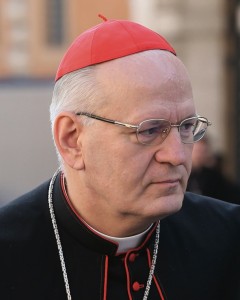
Cardinal Peter Erdo
“If we do not have the confidence to know objective truth and objective values which are based on reality, then we risk looking for the guidelines of our social comportment on the basis of purely formal criteria, such as majority votes, independent of content, or the formality of proceedings, at various organizations, as the only justification for a choice…
“Therefore the current tendency to pass off those things which are simply desires, often selfish ones, as true and proper rights, while denying the basic objective of all law, must be avoided…
“Finally, there are theories according to which personal identity and emotional intimacy ought to be radically detached from the biological difference between male and female….The resulting confusion relegates the special bond between biological difference, reproduction and human identity to an individualistic choice…
“The gaze of Jesus is that of mercy, of the mercy which is based on truth…. If we seek the truth about marriage and family…then we grasp it in all its fullness and all its holiness… a great mystery which manifests the love of Christ for the Church (cf Eph 5:32)…
“Jesus himself, referring to the original plan of the human couple, reaffirms the indissoluble union between a man and a woman, though saying to the Pharisees that ‘for your hardness of heart Moses allowed you to divorce your wives, but from the beginning it was not so’ (Mt 19: 8). The indissolubility of marriage…is to be understood not as a ‘yoke’ imposed on persons but as a ‘gift’ to a husband and wife united in marriage. (Instrumentum laboris 41)…
“From this intimate connection between the sacrament of marriage and the reality of the Church it follows that the Church community has a duty to care for all those who cohabit or are in marital or family situations which cannot become a valid marriage, much less a sacramental one. ‘Conscious that the most merciful thing is to tell the truth in love, we go beyond compassion. Merciful love…is an invitation to conversion (cf John 8:1-11)’ (Instrumentum laboris 67)…
“Listening to the Word of God, our response must give sincere and fraternal attention to the needs of our contemporaries, in order to transmit to them the liberating truth and being witnesses of the greatest mercy.”
“You don’t solve a headache by cutting off the head!”
Extracts from an interview with Nigeria’s Cardinal Francis Arinze (he did not attend the Synod)
Nigeria’s Cardinal Francis Arinze, 83, incarnates many of the qualities typically associated with African Catholicism: he has a delightful, innocent sense of humor and an infectious smile, and he’s unyielding in defending Catholic orthodoxy.
The cardinal no longer holds a Vatican post, and thus was also not a participant in the Synod. But, when 10 of his fellow African prelates recently published a book on Synod themes — called Christ’s New Homeland (Ignatius Press) — they asked Cardinal Arinze to contribute the preface.
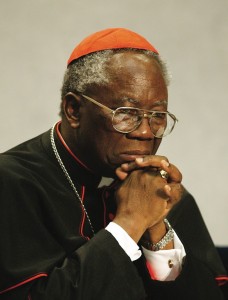
Cardinal Francis Arinze
Following are excerpts from an interview the cardinal gave with the website Crux.com while he was in Rome during the Synod.
What would Africans like to see from this Synod?
I think they would like the Synod to speak with a clear voice that marriage comes from God, as a union between a man and a woman… so human beings cannot reinvent or redefine it.
You are convinced it’s not possible to invite divorced and civilly remarried Catholics to Communion?
That is correct… a consummated marriage sanctified by the sacrament cannot be broken by any authority… That being so, if a man leaves a woman, and they get a fresh partner… Christ has one word for a person who does that: “Adultery.” We cannot be wiser than him, or say that “there is a circumstance he did not foresee.” We cannot be more merciful than Christ. We must look for a way to help the divorced who are remarried, [but] we don’t help them by saying, “Come and receive Holy Communion.” The Eucharist is not something we possess, and we can give to our friends and those with whom we sympathize… We have to look for another way to ensure compassion for those who are in difficulty. You don’t solve a headache by cutting off the head!
There has been conversation in the synod about a finding a “new language,” especially on homosexuality…
I would wonder what type of new language you want. Shouldn’t we call things by their name, calling good “good” and evil “evil”? … One of the duties of bishops is to teach, and it is very important that the Gospel be undiluted, without adding salt or pepper, but without subtracting them, either.
Some have talked about allowing decisions at the level of regional or national bishops’ conferences or by individual bishops…
Are you going to tell me that we can have a national bishops’ conference in one country that would approve something which, in another conference, would be seen as sin? Is sin going to change according to national borders?
“A Romanian Doctor Makes a Powerful Plea”
Dr. Anca-Maria Cernea, head the Association of Catholic Doctors in Romania, gave this splendid talk
Anca-Maria Cernea is a citizen of Romania whose parents were imprisoned by the Communists, her father for 17 years. After the collapse of the regime in 1989, she was active in politics, and served as head of the Foreign Affairs Division of the Department for Local Administration from 1998 to 2000. She helped create the Ioan Barbus Foundation, named after her father and dedicated to upholding liberty, traditional values and capitalism. She is a practicing physician in Bucharest, and president of the Association of Catholic Doctors there.
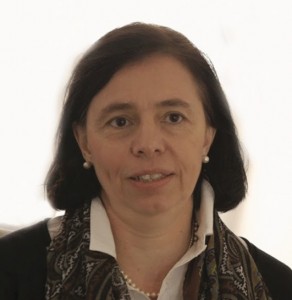
Dr. Anca-Maria Cernea
Presentation to Pope Francis and the Synod of Bishops. Friday, October 16, 2015
Your Holiness, Synod Fathers, Brothers and Sisters, I represent the Association of Catholic Doctors from Bucharest.
I am from the Romanian Greek Catholic Church.
My father was a Christian political leader, who was imprisoned by the communists for 17 years. My parents were engaged to marry, but their wedding took place 17 years later.
My mother waited all those years for my father, although she didn’t even know if he was still alive. They were heroically faithful to God and to their engagement.
Their example shows that God’s grace can overcame terrible social circumstances and material poverty.
We, as Catholic doctors, defending life and family, can see this is, first of all, a spiritual battle.
Material poverty and consumerism are not the primary cause of the family crisis. The primary cause of the sexual and cultural revolution is ideological.
Our Lady of Fatima has said that Russia’s errors would spread all over the world. It was first done under a violent form, classical Marxism, by killing tens of millions. Now it’s being done mostly by cultural Marxism. There is continuity from Lenin’s sexual revolution, through Gramsci and the Frankfurt school, to the current-day gay-rights and gender ideology. Classical Marxism pretended to redesign society, through violent take-over of property.
Now the revolution goes deeper; it pretends to redefine family, sexual identity and human nature.
This ideology calls itself progressive. But it is nothing else than the ancient serpent’s offer, for man to take control, to replace God, to arrange salvation here, in this world.
It’s an error of religious nature, it’s Gnosticism…
The solution is: Evangelization. Conversion.
Not an ever increasing government control…These are nowadays the main agents imposing cultural Marxism to our nations, under the form of population control, reproductive health, gay rights, gender education, and so on.
What the world needs nowadays is not limitation of freedom, but real freedom, liberation from sin. Salvation.
Our Church was suppressed by the Soviet occupation. But none of our 12 bishops betrayed their communion with the Holy Father. Our Church survived thanks to our bishops’ determination and example in resisting prisons and terror…
Now we need Rome to tell the world: “Repent of your sins and turn to God, for the Kingdom of Heaven is near.”
Not only we, the Catholic laity, but also many Christian Orthodox are anxiously praying for this Synod. Because, as they say, if the Catholic Church gives in to the spirit of this world, it is going to be very difficult for all the other Christians to resist it.
“The Church cannot bend to the will of the person”
Synod intervention of Archbishop Gadecki of Poland, speaking for all the Polish bishops
Stanisław Gadecki, 66, is the current bishop of Poznan, Poland, and the president of the Polish Episcopal Conference. The archbishop said in a recent interview that gender ideology, a topic at the Synod, was “worse than Communism” because it is “a pure ideology that is actually bent on destroying marital and familial relationships.”
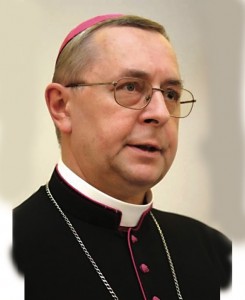
Archbishop Gadecki
He said the ideology may take many forms, but it ultimately has one goal: “the pulverization of society, so that man stays alone and is more easily manipulated.” Here are excerpts from his remarks:
Saturday, October 10, 2015
I wish to stress at the start that this speech is not only my personal opinion, but the opinion of the whole Polish Episcopal Conference.
1. It is obvious that the Church of our time must — in the spirit of mercy — support the divorced living in repeated civil unions, caring for them with a special love, in order that they do not feel that they are cut off from the Church…
2. Nevertheless the Church, in teaching about giving Holy Communion to the divorced living in new civil unions, cannot bend to the will of the person, but only to the Will of Christ …
To agree that those living more uxorio [“as if they were married”] in nonsacramental unions should be able to receive Holy Communion would be against the Tradition of the Church. Already documents from the earliest synods in Elvira, Arles, Neocesaria, which took place in the years 304–319, confirm the doctrine of the Church, that the divorced living in new unions cannot receive Holy Communion.
The basis of this position is the fact that their state and way of life is objectively a denial against the bonds of love between Christ and the Church, “which is expressed and realized by the Eucharist” …
3. The Eucharist is the sacrament for the baptized who are in a state of sacramental grace. Permission for people who are not in a state of grace to receive Holy Communion could do immense harm not only in the pastoral ministry for families, but also for the doctrine of the Church about sanctifying grace.
In reality the decision to give them Holy Communion would open the door to this sacrament for everyone living in mortal sin. In consequence this would write off the meaning of the sacrament of penance and distort the meaning of life lived in a state of grace. It is also necessary to stress that the Church cannot accept so-called gradualism of the law… (English translation courtesy of JLPressAgency.com)
“Without mercy, the words of Jesus would be empty”
Louis Raphael I Sako, Patriarch of Babylon, excerpts from an interview
Louis Raphael I Sako, Patriarch of Babylon of the Chaldeans (Iraq), is a Synod Father whose perspective is not that of the West, and the challenges his faithful face are different than the challenges facing the Christians in the West.
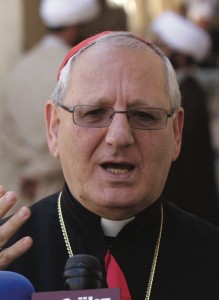
Louis Raphael I Sako, Patriarch of Babylon
What do you think are the guidelines that emerged from the Synod on the Family?
In these three weeks we have noted that we live in different situations… In the Middle East, there are not even civil marriages… But I see emerging two important things. The first, is a shared perception: Rather than press their legal systems, we should look to the spirit of the sacrament as such, its dynamics of grace. Even indissolubility is not a kind of “mechanical lock” which would be triggered automatically… It is itself a gift of God’s grace. Even so, I believe, many Synod Fathers asked to return to a biblical language.
And the second?
Mercy cannot remain vague… The model remains, forever and for all, Jesus, as we meet in the stories of the Gospel. Even in his day there was divorce, polygamy, infanticide… Outside the embrace of his mercy, and separate from it, the words of Jesus about marriage would not be the promise of a beautiful thing that becomes possible because of His grace, but only a rigor even more stifling than the Doctors of the Law. Following Jesus, the Church must be a mother and teacher…
You are a Patriarch of an Eastern Church. In your opinion, did the Synod evaluate with attention the “Orthodox way,” in which a “dissolution of the bond” after failed marriages is permitted?
The discipline inspired by the so-called “oikonomia” manifests an indulgence in concrete cases, taking into account the fragility of human nature wounded by original sin, and does not forbid people living a second marriage after the failure of the marriage to receive the sacraments.
But the Synod did not take this practice very much as a reference point. It remains a fact: the Eastern Churches have adopted, since the first millennium, a sacramental condescension toward those who live a stable second union. And the Catholic Church recognizes the Eastern Churches as true Churches, with valid apostolic succession and valid sacraments. And so, in the light of this, it seems rather excessive to argue that giving the Eucharist to the divorced in second marriages betrays or contradicts the faith handed down from the Apostles.
In the imperfect communion in which we live with the Orthodox Churches, we should take advantage of our mutual witness, to enrich us all, and to accompany all toward eternal salvation. We want people to be saved, not that they go to hell. (Excerpts from an interview with Gianni Valente)


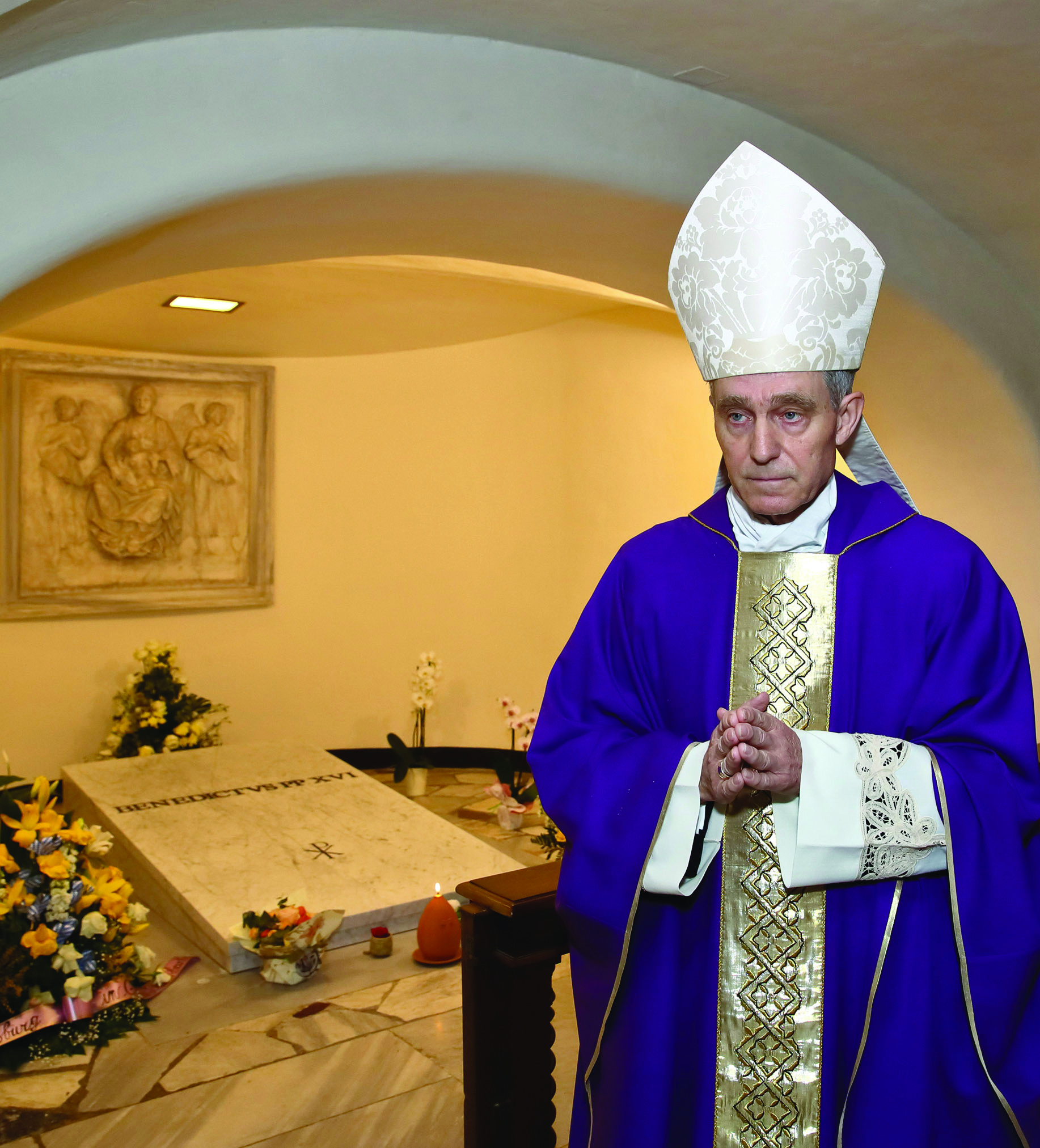
Facebook Comments